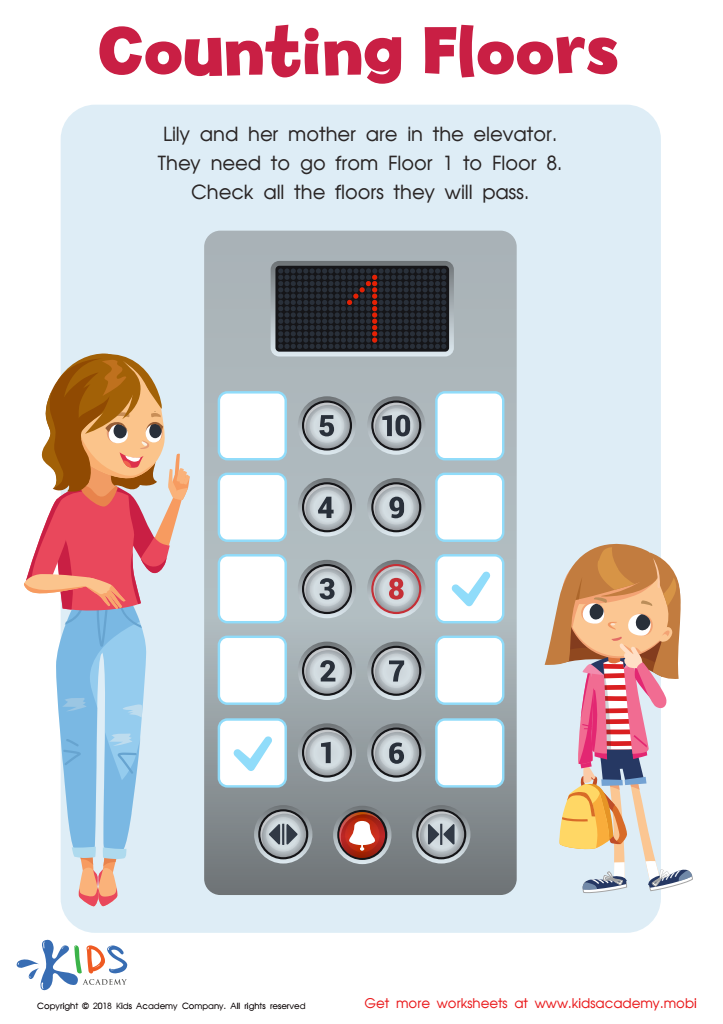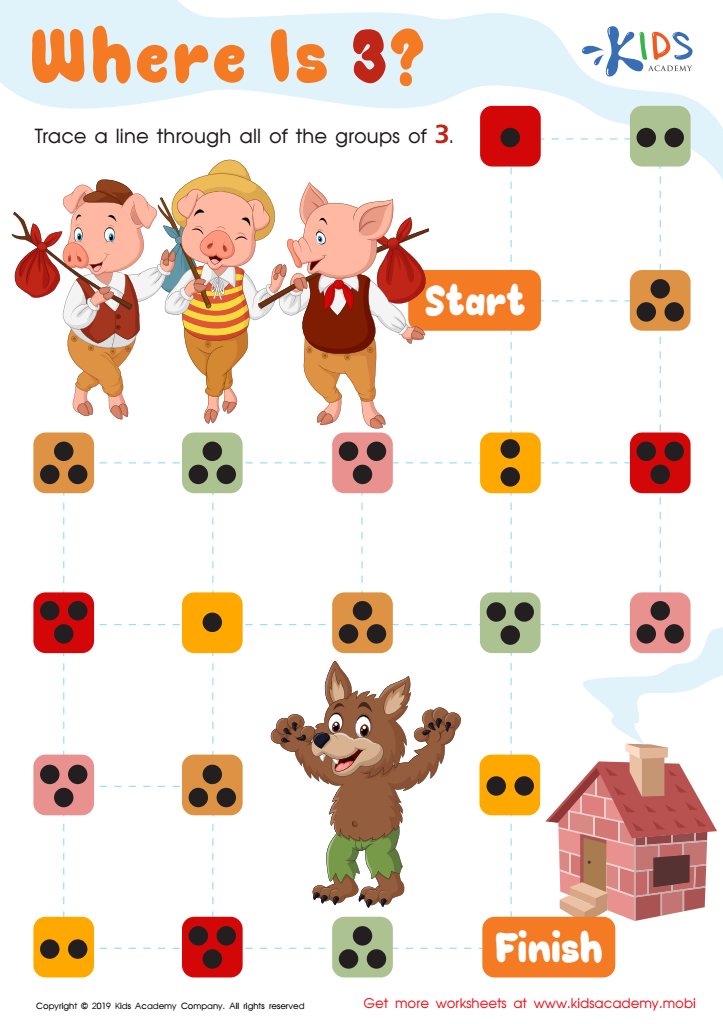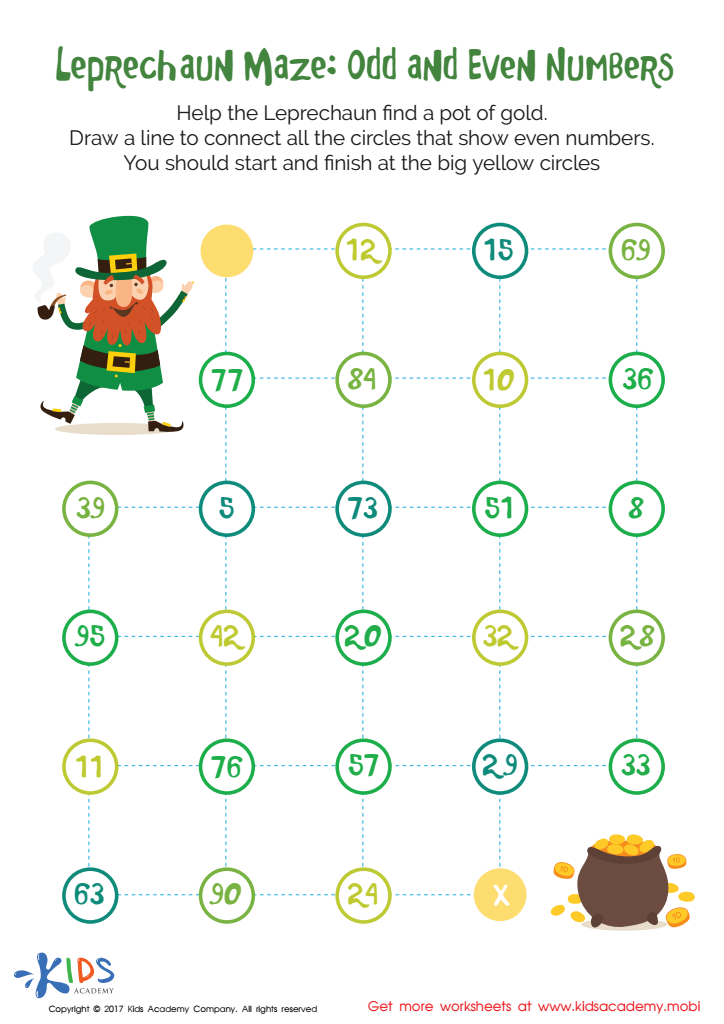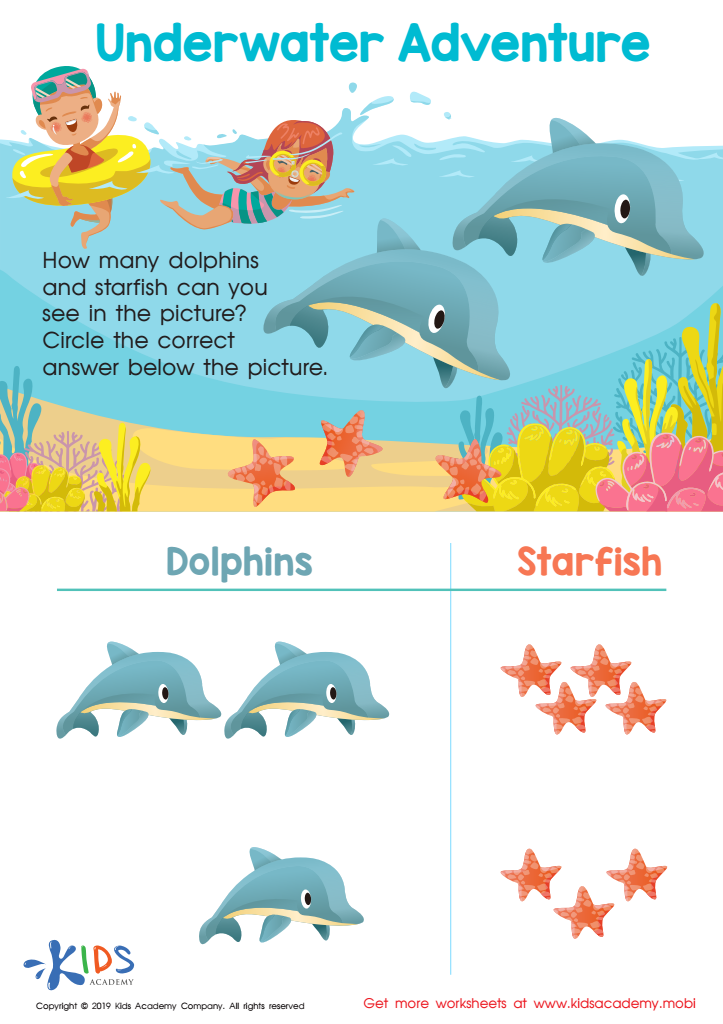Spatial awareness Numbers Worksheets for 6-Year-Olds
4 filtered results
-
From - To
Unlock your child's potential with our Spatial Awareness Numbers Worksheets designed specifically for 6-year-olds! These engaging worksheets help children develop essential spatial skills while they explore numbers through fun and interactive activities. By focusing on concepts such as shapes, patterns, and distance, kids will enhance their ability to visualize and manipulate objects in space. Our worksheets not only promote mathematical understanding but also strengthen cognitive abilities, paving the way for future learning success. Perfect for homeschooling or classroom use, these resources cater to varying learning styles, ensuring that every child can thrive. Boost your child's spatial awareness and confidence today!


Counting Floors Worksheet


Where Is 3? Worksheet


Leprechaun Maze Printable


Underwater Adventure Worksheet
Spatial awareness refers to the ability to understand and interact with the space around us, which is crucial for a child's overall development. For 6-year-olds, developing spatial awareness through numbers is particularly important as it enhances their mathematical skills and lays the foundation for critical thinking. When children grasp concepts such as sizes, distances, positions, and shapes in relation to numbers, they become more adept at problem-solving and logical reasoning.
Both parents and teachers should care about this cognitive skill because it directly correlates with a child's success in various subjects, particularly mathematics. Children who can visualize numbers better understand concepts like addition, subtraction, and geometric relationships. Additionally, engaging in activities that foster spatial awareness—such as puzzles, building blocks, and geometry games—can enhance fine motor skills and coordination.
Moreover, spatial awareness plays a vital role in everyday tasks like reading maps and understanding visual instructions. By nurturing this skill, adults contribute to building confident learners who can navigate academic challenges more effectively. Investing in such foundational skills ensures that children are well-prepared for higher-order thinking in later stages of education, becoming lifelong learners equipped to tackle complex problems.
 Assign to My Students
Assign to My Students



















